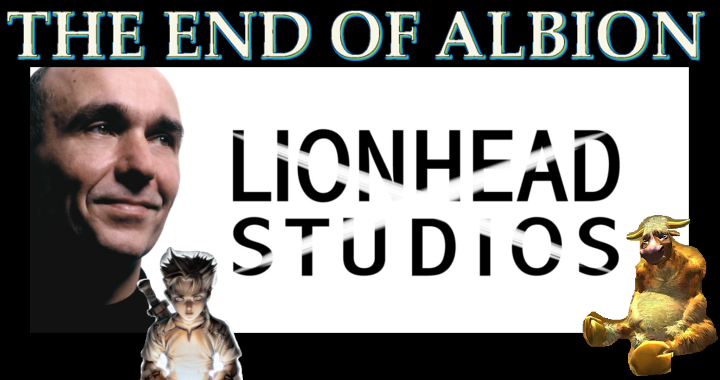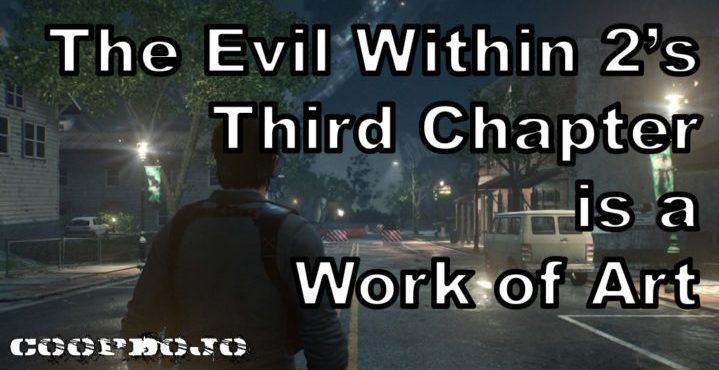
The End of Albion: Lionhead Studios on the Brink
On Monday, March 7th, Microsoft announced that Fable Legends has been cancelled and its developer, the once prominent Lionhead Studios, is on the brink of closure. Microsoft chose to release this troubling news that affects hundreds of developers and their families lives on their blog site where release all critical and hard hitting news, only the day before they dropped the news bombshell of “The 5 Biggest Reasons We’re Loving Plants vs. Zombies.” Snark aside, this is troubling news that marks the end of an era for Microsoft and its beloved but troubled Fable series and is a tragic conclusion for Lionhead Studios and its roller-coaster experience being associated with the polarizing and infamous Peter Molyneux.
Lionhead Studios was founded way back in 1996 with the god-sim game Black & White (2001). You play as a god represented by a disembodied hand as you interact with tribes on an island in an attempt to gain their faith. You also control a creature that acts on your behalf and can be trained to act on your behalf. AI was wonky at times as the creature could act erratic stomping over your followers and the motion based gameplay was hit or miss, but for 2001 this was a surprisingly rich experience and one of the earlier games where morality was a gameplay element as your followers would develop temples for good or evil based on your behavior. In his notorious showman fashion, Molyneux demoed this game in a video where he zoomed from a continent to an island to a house to a barrel to an apple with a worm promising this level of detail throughout the game. It resonated, but wasn’t the case when the game actually released.

We were always more of an old testament kinda god
After Black & White, Lionhead Studios attempted to make an incredible ambitious action role-playing game with a protagonist that would “age, become scarred in battle, get tattoos” and every player would have “a unique experience, to have their own stories to tell.” Molyneux promised a vibrant world where people reacted to what you did and it would be “the best game ever.” Dubbed Project Ego, Fable would be eventually be released on the new Xbox console and be one of the exclusive titles Microsoft had in its early years. The game of course did not deliver on nearly all of its promises. The story was incredibly linear. The world was certainly vibrant but relatively static and with long loading screens between every section. Reality couldn’t come close to the hype Molyneux sold to the public but the game itself was a solid action adventure title (with a great soundtrack from none other than Danny Elfman).
The next year Lionhead Studios released The Movies for PC, another title that was in development for 4 years and with its own share of hype (its E3 booth in 2002 was the most visited as companies fought to get the right to distribute the game). Billed as a business simulation game, it’s effectively a Sims-Hollywood Studio experience where you control the structure of a motion picture backlot and try to release hit films. It’s a novel experience but without much depth so Lionhead Studios attempted to cultivate a community of user generated tools a la Mario Maker or Little Big Planet. We enjoyed our time with The Movies in 2005, but understand why the series didn’t merit a full sequel.
After that, Lionhead Studios and Molyneux focused on expanding the Fable experience. Fable 2 arrived in 2008 with the welcome additions of an unkillable companion dog as well as drop in and out coop. This, for us, was the high mark of the Fable series as it included just about everything we’d want in the franchise minus greater depth in character customizations, weapons, and overall longevity in the game itself which was over in about 10 hours. Fable 3 came out two years later and while it didn’t evolve too much of the formula it did include a stellar cast including John Cleese, Stephen Fry, and Simon Pegg.

Not even a flashy villain is big enough for Stephen Fry
Hype was always Lionhead Studios’ greatest problem though. The name Peter Molyneux comes with a jaded connation in the gaming community thanks for his rampant showmanship for his games in development. He’d talk about not-yet-developed features like trees growing in games and leave gamers to fill in the gaps of the potentials of his next game. Inevitably upon release the games would underwhelm from gamers’ expectations. We can’t really fault Molyneux for being effective at marketing so the backlash he received from the gamer community and the frequent apologies he made seemed bizarre to us.
Lionhead Studios never really could stop making Fable titles in the last decade perhaps at the request of Microsoft. They went on to make an Xbox Live Arcade beat-em-up game in the Fable universe and also an on-rails Fable experience for the poorly executed Microsoft Kinect device. It’s a shame though as they appeared to have other original ideas like BC and Unity that could get through the development cycle.

Molyneus sure knew how to hype his games
In 2012 Molyneux left Lionhead Studios to start a new production company, 22Cans. It’s hard not to assume that Molyneux’s departure negatively affected Lionhead Studios. Sure, he was infamous and hated by many in the gaming community who felt robbed by his hyperbolic promises, but he seemed to have a focus for each game (Fable was inspired by folklore, Fable 2 by King Arthur and Robin Hood, Fable 3 by rebels and monarchs) and he was never afraid to go on camera to discuss his vision which perhaps Lionhead needed at times to deliver an experience. From an outsider’s perspective, Microsoft seemed to be asking Lionhead Studios to focus hard on developing games for its new technology, the Kinect. The story seems eerily similar to the Konami and Hideo Kojima debacle as they shifted to a strategy of mobile games despite the sizeable returns they felt with every new Metal Gear title.
Say what you want about Molyneux’s style, Lionhead Studios did deliver some of the most memorable experiences we had on Microsoft’s consoles and Fable 2 came dangerously close to being one of our favorite games of all time. We didn’t understand where Microsoft was taking them in their later years and, presumably, neither did Molyneux as he jumped ship, but to see them on the brink of collapse after nearly two decades making games seems like a tragic ending as we’ll likely never get a new experience to explore Albion again.

Not the Feels! We’re gonna miss Albion.


